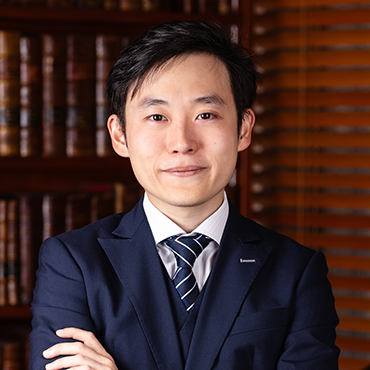HKSAR v So Tsun Fung [2025] 2 HKLRD 111, [2025] HKCFI 916 (Jason Szeto)
Carter Chim, Yvonne Leung, and Jason Szeto represented the appellant in HKSAR v So Tsun Fung [2025] 2 HKLRD 111, [2025] HKCFI 916.
The National People’s Congress issued the Decision on Improving the Electoral System of the Hong Kong Special Administrative Region (the HKSAR) on 11 March 2021. Pursuant to the Decision, art.6 of Annex II to the Basic Law was amended to state that “[t]he HKSAR shall, in accordance with the law, take measures against acts of manipulating or undermining election”. The Elections (Corrupt and Illegal Conduct) Ordinance (Cap.554) (the ECICO) was then amended to introduce the new s.27A. Section 27A(1) of the ECICO (the Provision) made it an illegal conduct, thus a criminal offence under s.22 of the ECICO, to carry out any activity in public during an election period that incites another person not to vote or to cast an invalid ballot. D was charged with the offence under the Provision. D raised a preliminary issue that the Provision unconstitutionally infringed his right to freedom of expression under art.27 of the Basic Law and art.16(2) of the Hong Kong Bill of Rights (the BOR) or his right to equality before the law under art.25 of the Basic Law and arts.1(1) and 22 of the BOR. The Magistrate ruled that the Provision was constitutional as the offence satisfied the prescribed by law requirement; was rationally connected to the legitimate aim of regulating acts which manipulate or obstruct an election; the restriction to the freedom of expression was reasonably necessary and struck a reasonable balance between its objective and the persons affected; and did not constitute any unjustified differential treatment between groups of persons. D then pleaded guilty and was sentenced to a suspended sentence of imprisonment. D appealed by way of case stated on a point of law, arguing that: (i) the Provision constituted a restriction of political expressions; (ii) it was not rationally connected to any aim of ensuring the integrity of a genuine, fair, open and honest election because voters were free to choose to not to vote or to cast an invalid vote and that an invalid vote per se would not cause any harm to the integrity of elections; (iii) the restriction to freedom of expression was more than necessary as it criminalised all political expression in public to persuade voters not to vote or to cast an invalid vote, did not require incitement of hatred, intolerance, discrimination or particular consequences and provided for imprisonment as a penalty; and (iv) failed to strike a reasonable balance between societal benefits and inroads into freedom of expression as it was in the public interest to promote free speech including criticisms against the electoral system so that the public could make an informed decision in a fair and open election. D also argued that there was unjustified differential treatment as citizens were prohibited from inciting others to not vote or to cast an invalid vote, but not inciting others to vote for a particular candidate or to vote generally.
Held, dismissing the appeal, that:
- (1) Overseas authorities relied on by D, particularly concerning regimes allowing organising for voters not to vote, were not of useful assistance for analysis because of the unique background of the creation of the Provision following the disturbances in Hong Kong around 2019 and the subsequent decision of the National People’s Congress and amendment to the Basic Law in respect of organising and regulating electoral activities. (See paras.97-99.)
- (2) The Provision satisfied the Hysan proportionality test. First, it pursued a legitimate aim of ensuring a fair and open election and second, was rationally connected to such legitimate aim. Inciting or organising others not to vote was not conducive to an effective election process, wasted public resources and affected individuals in exercising their choice free from any disturbances and undue interference (Hysan Development Co Ltd v Town Planning Board (2016) 19 HKCFAR 372 applied). (See paras.100-103.)
- (3) Third, the restriction of freedom of expression was no more than necessary, considering that the Provision only regulated public activity during an election period and provided for a defence of lawful authority or reasonable excuse. The election regime in Hong Kong should also be assessed against its unique historical and legislative background (Teslenko v Russia (App no 49588/12, 5 April 2022), [2022] ECHR 298 distinguished). (See paras.104-108.)
- (4) Fourth, the restriction of freedom of expression struck a reasonable balance, considering that the Provision only regulated public activity during an election period, that society would benefit from a smooth, open and undisturbed election and that the penalty upon conviction could not be regarded as severe. (See para.109.)
- (5) D’s argument on the right to equality before the law was also rejected. Persons who incited others to vote and persons who incited others not to vote were not comparable because the latter group of persons disrupted or manipulated instead of promoted the election process. Any differential treatment would in any event be justified because inciting others not to vote rendered the election process futile and affected the smooth transition of representation of public opinion. (See paras.111-112.)
[The above is excerpted from the headnote to the report in HKLRD.]


